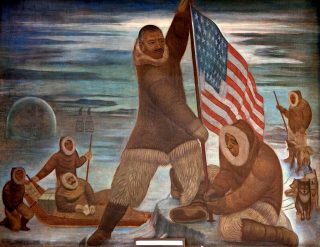Former Williams-Mystic literature professor Rich King has co-authored an article in Woods Hole Oceanographic Institute’s journal, Oceanus: “Diverse Voices From Our Maritime Past: Exploring the value of historical observations by mariners of color.” The article highlights the often neglected historical contributions from mariners of color. Click this link to read the article.

“Environmental historians, marine ecologists, and other scholars ask questions that are quantitative-how much sea grass here in the 1700s; how many bowheads there in the 1900s. And, they pose qualitative questions about perceptions of marine life-how did mariners respond to seeing a shark here in the 1600s; how did local fishermen value shearwaters there in the 1800s?
The answers to these questions require the study of historical marine observations by a diverse range of observers, including Indigenous peoples and marginalized mariners, fishermen, and naturalists. Including these records in undergraduate and graduate coursework also decolonizes syllabi, clarifying that it has not only been white Western men who have built our global knowledge of ocean life. And researchers studying diverse sources help reduce biases in their data and the studies themselves.
Although few historical mariners and fishermen of color were able, as Henson did, to publish their narratives in books, communicate their studies in journals, or archive their papers in museum collections, there are still documents that remain. They can be hard to find. In recent years, though, scholars have begun to retrieve and reexamine these narratives, highlight them, and provide wide electronic access to these voices. These free digital collections are now indispensable tools for environmental historians and other researchers. For example, the website database Searchable Sea Literature (one of us is an editor), offers open access peer-reviewed biographies and collects full-text electronic narratives allowing the search for race, gender, ethnicity, geography, and types of ocean experience. The website links to other databases such as Archive.org, HathiTrust, Google Books, Project Gutenberg, and the Biodiversity Heritage Library. It would be hard to overestimate how much over the last two decades these open access resources have expanded the international opportunities for research across a range of disciplines that study the ocean.”